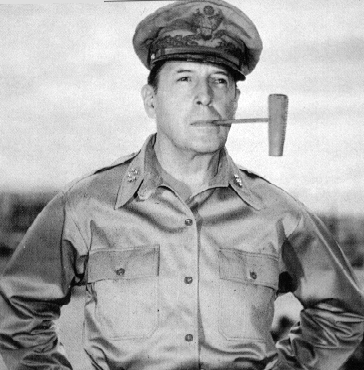By Miles Williams
What you see below does not necessarily represent my position on pacifism. I simply don't have a strong position on the issue, because, well, I'm not certain whether or not I agree with all its tenants. I'm more so posting this article to (1) start stirring the pot a bit and (2) to give voice to a position which I think, regardless of my beliefs about it, needs to be wrestled with and thought about by the Christian community. I wrote this essay for one of my classes, where I had to pretend I was responding to a letter from a friend who questioned how I could possibly maintain a pacifist position given the violence found in the Old Testament. Even though this essay may make me sound like a pacifist, I'm only pretending to be one for the sake of doing the assignment (once again, I don't know whether or not I agree with pacifism or not).
Dear friend,
Your question
regarding how I could possibly maintain a pacifist position, given the violence
in the Old Testament, is understandable.
I hope the following argument will adequately demonstrate the veracity
of my position, or at the very least, I hope that the following will clarify
the matter for you.
Many
people mistakenly approach the Old Testament as if it held some pertinent
answer to the question of “whether the taking of human life is morally
permissible or forbidden under all circumstances?” An ancient Israelite would never have
conceived of such a modern question. As
John Howard Yoder indicates in his book The
Politics of Jesus, “rather than reading with the modern question in mind,
whether it confirms certain moral generalizations or not, the Israelite read it
[the Torah] as his or her own story, as the account of his or her own past
throwing light on who he or she was” (76).
As modern people, therefore, we ought to not neglect the intended
meaning of the Old Testament—that it is narrative. Though, of course, I do not mean to say that
the Old Testament stories fail to convey moral truths. However, if we want to gain a clearer
understanding of what the violent stories in the Old Testament should tell us
about morality, and about the nature of God, we need to first consider what the
Israelite saw as significant about these stories.
According
to Yoder, “one of the traits of the Old Testament story, sometimes linked with
bloody battles but also sometimes notably free of violence, is the
identification of YHWH as the God who saves his people without their needing to
act” (76). The Exodus story, for
example, serves as a harrowing tale of God saving his people from captivity, without
any need on their part to act. The
Israelites’ only call from YHWH was to believe and obey, while God did the work
of defeating the Egyptians.
Further
on in Exodus, in chapter 17, we see the Israelites in battle with the
Amalekites. To the Israelite reader, the
story is portrayed in such a way as to demonstrate the power of God; not the
glorification of violence. Moses, out of
his own frustration with the Israelite people, endeavors to attack the
Amalekites. Yoder indicates, “this time
Moses and Joshua respond in their own way to the Amalekites’ attack; they fight
their own battle. Yet the battle goes against them when Moses’
tiring arms lower the symbolic ‘rod of God,’ and they prevail only as the rod
is again held aloft” (77; emphasis mine).
God, thus, gets the credit for victory; not the military prowess of
Israel.
Sometimes,
too, we see war portrayed as a negative consequence of Israel, or of its kings,
failing to trust in YHWH. In 2
Chronicles 16, we see King Asa chastised by a prophet for allying with the king
of Syria rather than relying on God. Asa
is told by the prophet, “from now on you will have wars” (Yoder, 80). War, then, can be a potential negative
consequence of failing to trust YHWH.
While
we as modern readers may look at the above stories and say “see, God does
condone violence,” such is not what an Israelite would say. The Israelite, instead, would look at the
above stories and say “see, God saves his people when they believe in him and
are obedient to his commands.” These
stories are not intended to offer us normative ethics regarding violence. They rather convey the truth that God saves
his people when they believe in him and obey him. We moreover see, post Babylonian Exile, the
emergence of a belief in YHWH as the miraculous preserver of the Israelite
people—both in stories wherein military activity is used, and wherein no
weapons are required. “YHWH is an
alternative to the self-determining use of Israel’s own military resources in
defense of their existence as God’s people” (Yoder, 83). Pacifism, therefore, is a position whereby I
am simply saying that I will trust and obey God, and let him fight my battles
for me. Such was the perspective held by
the Israelites who were always outnumbered and outmatched by superior enemies. If you are still intent on the use of
violence, however, there is good Biblical precedent for taking a sling and a
stone to a machinegun fight.
Source:
- Yoder, John Howard. The Politics of Jesus. 2nd Ed. Grand Rapids: William B Eerdmans Publishing Company, 1994.


